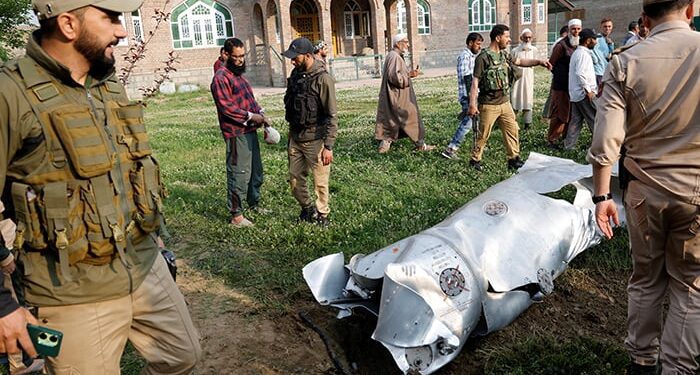n May 7, 2025, Pakistan’s armed forces executed significant retaliatory strikes against India, claiming the downing of five Indian Air Force (IAF) jets, including three Rafales, one Su-30MKI, and one MiG-29 Fulcrum, along with a combat drone. Additionally, Pakistan reported the destruction of multiple brigade headquarters and checkposts along the Line of Control (LoC) .
These actions were in response to India’s earlier missile strikes, codenamed Operation Sindoor, which targeted nine locations in Pakistan and Pakistan-administered Kashmir. India stated that the operation aimed at neutralizing terrorist infrastructure linked to the April 22 Pahalgam attack, which resulted in the deaths of over two dozen tourists. Pakistan denied involvement in the Pahalgam incident and condemned India’s strikes as unprovoked aggression .
Civilian Casualties and Damage
Pakistan reported that India’s strikes resulted in the deaths of 26 civilians, including women and children, and injured 46 others. Notably, mosques in Ahmedpur East, Muzaffarabad, Kotli, and Muridke were among the sites hit. Infrastructure damage included harm to the Noseri Dam at the Neelum-Jhelum Hydro Power Project .
In retaliation, Pakistan’s shelling reportedly killed 10 civilians and wounded 48 in Indian-administered Jammu and Kashmir, according to Indian authorities .
International Reactions
The escalation has drawn international concern. U.S. President Donald Trump described the situation as “a shame,” urging both nations to exercise restraint. U.S. Secretary of State Marco Rubio engaged with officials from both countries to de-escalate tensions. China expressed regret over India’s military operation, while UN Secretary-General António Guterres called for maximum military restraint from both nuclear-armed neighbors .
Pakistan’s Stance
Prime Minister Shehbaz Sharif condemned India’s actions as a “cowardly attack” and affirmed that Pakistan reserves the right to respond decisively. Defense Minister Khawaja Asif stated that Pakistan had gained the upper hand through its retaliatory actions. Deputy Prime Minister and Foreign Minister Ishaq Dar labeled India’s airstrikes as an “unprovoked and blatant act of aggression,” emphasizing that the IAF targeted civilian areas using stand-off weapons while remaining within Indian airspace .
Diplomatic Measures
Pakistan has informed the United Nations Security Council about the situation, expressing serious concerns over India’s actions and asserting its right to respond appropriately under Article 51 of the UN Charter. The Foreign Office condemned India’s strikes as violations of international law and the UN Charter, emphasizing Pakistan’s commitment to defending its sovereignty and territorial integrity .
Airspace Status
Following the military exchanges, Pakistan temporarily suspended airspace over Lahore and Karachi for eight hours. The airspace has since been restored, with the Pakistan Airports Authority advising passengers to stay in contact with their respective airlines due to the regional situation .
Background: Pahalgam Attack and Operation Sindoor
The current escalation traces back to the April 22 Pahalgam attack, where 26 tourists were killed in Indian-administered Kashmir. India attributed the attack to Pakistan-based militants, a claim Pakistan has denied. In response, India launched Operation Sindoor, targeting what it described as terrorist infrastructure in Pakistan and Pakistan-administered Kashmir .
As tensions continue to rise, the international community watches closely, urging both nations to seek diplomatic solutions and avoid further escalation.
Related stories:
How Modi and Netanyahu Use Terrorism and Islamophobia to Justify War
Operation Sindoor: Confirmed Details of India’s Strike on Pakistan
















